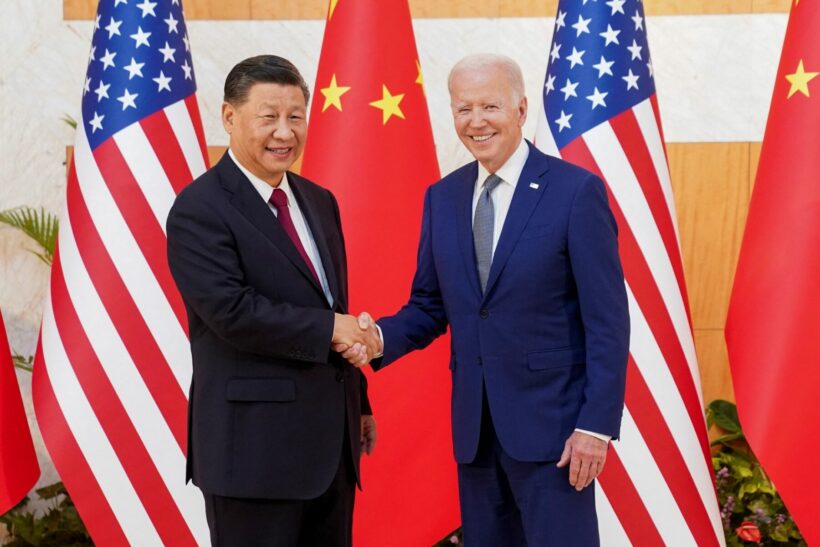US agrees to improve dialogue with China at G20 Summit

It appears United States President Joe Biden and Chinese President Xi Jinping listened to the sensible words of US Professor Jeffrey Sachs at the G20 Summit in Indonesia yesterday and sat around a table to talk instead of dragging the globe into yet another war.
Both presidents met cordially ahead of the summit, in Bali, shook hands, posed for the cameras, and engaged in talks on the sideline. Biden and Xi discussed a number of matters including the Russia-Ukraine conflict, North Korea and, of course, the politically sensitive Taiwan question.
Prior to the G20 Summit, the US propaganda team went into overdrive saying China was about to invade Taiwan, arguably a justification for Washington deploying up to six nuclear-capable B-52 bombers to northern Australia. Meanwhile, the Western press drum machine predicted another Cold War.
But President Biden yesterday promised there would be no “new Cold War” adding he did not believe China would invade Taiwan.
“I absolutely believe there need not be a new Cold War. I have met many times with Xi Jinping and we were candid and clear with one another across the board. I do not think there is any imminent attempt on the part of China to invade Taiwan.
“I made it clear we want to see cross-strait issues to be peacefully resolved and so it never has to come to that. And I’m convinced that he understood what I was saying, I understood what he was saying.”
The US President also revealed the globe’s two economic giants agreed to set up a system to maintain and improve dialogue to resolve any issues.
Biden added that US Secretary of State Antony Blinken will be visiting China soon to take part in diplomatic talks.
The 79 year old Biden also moved to reassure his Chinese counterpart that “our policy on Taiwan has not changed at all. It’s the same exact position that we have had.”
If that is the case the US still respects the One-China policy of Taiwan as a province and part of the Chinese mainland, recognized by the United Nations General Assembly Resolution in 1971, and another 181 countries.
President Xi stressed that…
“The Taiwan question is at the very core of China’s core interests, the bedrock of the political foundation of China-US relations, and the first red line that must not be crossed in China-US relations.”
“Resolving the Taiwan question is a matter for the Chinese and China’s internal affair. The US needed to be consistent with its words and actions over Taiwan.
“China-US relations should not be a zero-sum game in which you rise and I fall. The wide Earth is fully capable of accommodating the development and common prosperity of China and the United States.”
Wen-ti Sung, a political scientist who teaches with the Australian National University’s Taiwan Studies programme, told the BBC that there were “few substantive agreements.”
“Both leaders get a win. Xi shows he’s not intimidated by Biden, like the US and China are true equals.”
Political scientist Ian Chong of the National University of Singapore believes the meeting of the two political giants was overall positive.
“There’s some recognition that there are common interests, and these include not letting the relationship spiral out of control. But I would still be somewhat cautious. Given the volatility in China-US relations, they have starts and stops.”
Latest Thailand News
Follow The Thaiger on Google News:


























